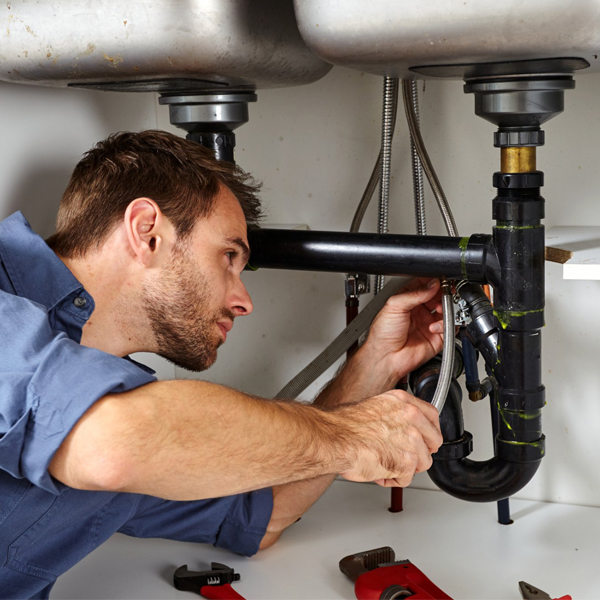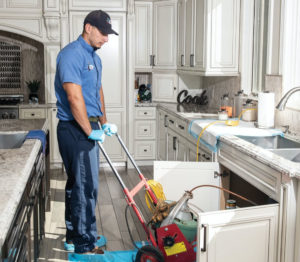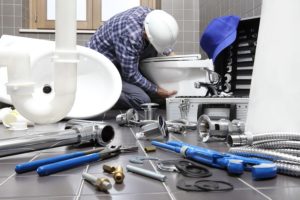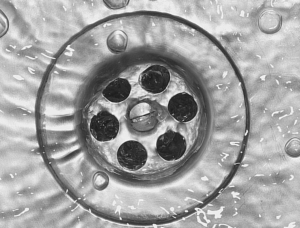
Plumbing issues can be a headache for any homeowner. From a leaky faucet to a burst pipe, plumbing problems can cause significant damage to your property if not addressed promptly. As a result, it is essential to have a basic understanding of plumbing repair and maintenance.
In this article, we will discuss various plumbing repair topics, including common plumbing problems, tips for DIY repairs, and when to call in a professional plumber.
Common Plumbing Problems
Several plumbing problems can occur in a home. Here are some of the most common:
Leaky Faucet
A leaky faucet is a common plumbing problem that can cause water waste and increase your water bill. Typically, a leaky faucet is caused by a worn-out washer or O-ring. These components can easily be replaced, but if you are not comfortable doing so, a plumber can help.
Clogged Drain
A clogged drain can be frustrating, especially when it causes water to back up in your sink or shower. Drain clogs are typically caused by a buildup of hair, soap residue, and other debris. To unclog a drain, you can try using a plunger, a drain snake, or a combination of baking soda and vinegar. If these methods do not work, it may be time to call in a professional plumber.
Running Toilet
A running toilet can waste a significant amount of water and increase your water bill. Typically, a running toilet is caused by a faulty flapper valve or a problem with the fill valve. These components can be replaced, but if you are not comfortable doing so, a plumber can help.
Burst Pipe
A burst pipe is a severe plumbing problem that can cause significant damage to your home. A burst pipe can be caused by freezing temperatures or excessive pressure in the pipes. If you have a burst pipe, shut off your main water supply immediately and call in a professional plumber.
Tips for DIY Plumbing Repairs
If you are handy around the house, you may be able to tackle some minor plumbing repairs on your own. Here are some tips for DIY plumbing repairs:
Know Your Limits
Before you attempt any plumbing repair, it is essential to know your limits. If you are not comfortable working with plumbing, it may be best to call in a professional plumber.
Use the Right Tools
Using the right tools can make all the difference when it comes to plumbing repairs. Make sure you have the necessary tools on hand before you begin any repair.
Follow Instructions
If you are using a DIY plumbing repair kit, make sure you follow the instructions carefully. Failure to do so can result in further damage to your plumbing system.
Be Safe
When working on plumbing repairs, safety should be your top priority. Make sure you turn off the water supply and use protective gear such as gloves and goggles.
When to Call in a Professional Plumber
While some plumbing repairs can be tackled on your own, there are times when it is best to call in a professional plumber. Here are some situations when you should call a plumber:
Major Plumbing Problems
If you have a major plumbing problem such as a burst pipe, it is best to call in a professional plumber. These types of problems require specialized tools and expertise to fix properly.
Complex Plumbing Repairs
If you are not comfortable working with plumbing or if the repair is complex, it may be best to call in a professional plumber. A plumber can quickly diagnose and fix the problem, saving you time and money in the long run.
Safety Concerns
If the repair involves working with gas lines, it is essential to call in a professional plumber. Working with gas lines can be dangerous and requires specialized training and equipment.
Time Constraints
If you do not have the time or expertise to tackle a plumbing repair, it may be best to call in a professional plumber. A plumber can quickly diagnose and fix the problem, allowing you to get on with your day.
In conclusion, plumbing repairs can be a headache for any homeowner. By understanding common plumbing problems, following DIY tips, and knowing when to call in a professional plumber, you can keep your plumbing system running smoothly and avoid costly damage to your property.



